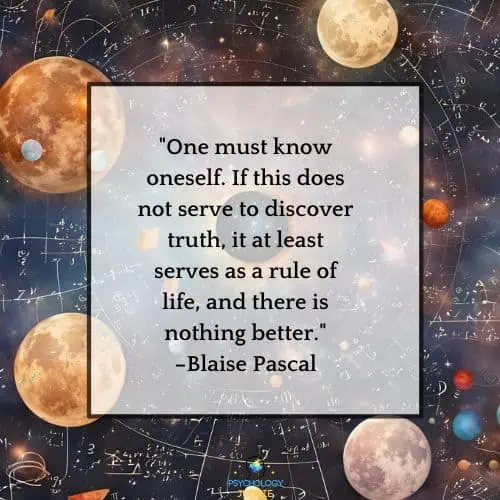The Rare Talents of Each Myers-Briggs® Personality Type
One of the things I deeply love about personality theory is the ability to help people see their strengths and build on them. Each of the 16 Myers-Briggs® personality types has a set of core talents and strengths. When people become awake to these talents they can often dramatically improve their lives and make a big difference in their community, family, or the world at large. Today I want to look at the talents of each type as well as give an example from a popular TV show, book, or movie, to showcase those examples! I hope you’ll enjoy it!
Not sure what your personality type is? Take our new personality questionnaire here. Or you can take the official MBTI® here.

Unearthing the Unique Talents of Each Myers-Briggs® Personality Type
Estimated reading time: 18 minutes

ESTP – The Daredevil
ESTPs are amazing at taking charge and making things happen. They’re great at figuring out what needs to be done first, negotiating, and winning people over. Whether they’re looking after family and friends or handling stressful situations, ESTPs tend to stay cool and collected. They notice details others might miss and naturally step up as leaders when things get tough.
A fictional ESTP I think of is Rocket Raccoon from the Guardians of the Galaxy movies. Rocket’s always quick to take control, whether he’s planning an escape or strategizing in a battle. His sharp mind and resourcefulness help him prioritize tasks and come up with clever solutions on the fly. While he may be a bit irreverent and cocky, his confidence and competence sway others to his side and make him an effective leader.
In high-stress situations, Rocket stays calm and executes plans with precision. His keen eye for detail lets him spot enemies’ weaknesses and opportunities others might miss.
Without turning this into a whole tribute to a superhero raccoon, it’s clear ESTPs have a ton of talents. They’re awesome at tackling challenges and troubleshooting in a tight spot. Their ability to stay calm under pressure, think quickly, and organize effectively is valuable for themselves and those around them.
ENTP – The Trailblazer
ENTPs are the inventors of the world, always ready to build prototypes and get projects launched. These Trailblazers are lifelong learners, constantly generating new possibilities and innovating even during the toughest times. On top of that, they also have an eye for strategy and can spot patterns and opportunities that others miss. And while they are indeed Thinking types, they can be persuasive and conscientious when needed, switching back and forth between debater and diplomat with relative ease. Their knack for seeing beyond the obvious makes them invaluable in roles that require creative problem-solving and visionary thinking.
Take Tony Stark, for example! Stark embodies the ENTP traits on-screen in Iron Man. He’s always tinkering, inventing, and looking for the next big breakthrough. Remember how he built the first Iron Man suit in a cave? That’s the ultimate ENTP move—turning a dire situation into an opportunity for innovation.
Stark’s mind is always racing with ideas, pushing the boundaries of what’s possible. He’s strategic, always a few steps ahead, and can charm his way through tough personal situations when needed. His ability to think outside the box and see the bigger picture has saved the day countless times.
So, if you’re an ENTP or know one, embrace that inventive spirit! Keep pushing boundaries, thinking creatively, and turning challenges into opportunities.
ISTJ – The Detective
ISTJs are the planners and doers of the world. They have a talent for drawing up detailed plans, mapping out a course, and making sure that everything is on schedule. Detectives are the backbone of any community, staying responsible and persevering even when the going gets tough. When a challenge shows up, they aim to stay calm and plan, sequence, and organize so that everything is handled as quickly as possible.
Take Rick Grimes from The Walking Dead, for example. If you’ve seen the show, you know Rick is the guy who’s always thinking ahead, carefully planning the group’s next move to ensure everyone’s safety. When the world went to hell, Rick stepped up, taking responsibility for the survival of his group. His attention to detail and relentless drive to do what’s right, even when it’s hard, makes him a natural leader. He’s not just reacting to problems; he’s anticipating them and creating plans to deal with them.
So, when you think of ISTJs, think of reliable, efficient, and responsible individuals like Rick—people who keep things running smoothly, even when everything around them is falling apart. They might not be the loudest in the room, but they’re the ones you can count on when it really matters.
Find out more about ISTJs: 24 Signs That You’re an ISTJ, the Detective Personality Type
INTJ – The Strategist
INTJs are the visionaries of the world, the kind of people who can see the big picture and make it happen. They have a talent for forecasting the long-term future and building an original goal around that perceived future. Their knack for systems thinking and ability to understand the underlying reasons behind things put them on the cutting edge of innovation. On top of that, INTJs are lifelong learners, always on the hunt for new knowledge. For an INTJ, a day without learning is a day without meaning.
Take Bruce Wayne from Batman, as an example. He’s a master strategist, always several steps ahead of his adversaries. He doesn’t just react to situations; he plans carefully, anticipating the most likely outcome. His entire crime-fighting career is built on his ability to foresee the future and prepare for it. Plus, Bruce Wayne’s commitment to learning and self-improvement is off the charts. Whether it’s mastering new technologies, honing his detective skills, or understanding criminal psychology, he’s always pushing the boundaries of what’s possible.
So, if you’re an INTJ or know someone who is, recognize the incredible potential there. These are the people who change the game, who see the world not just as it is, but as it could be. They’re the masterminds behind groundbreaking innovations and transformative ideas.
Find out more about INTJs: 10 Things You Crave Every Day as an INTJ Personality Type
ESFP – The Champion
ESFPs are the ultimate go-getters, skilled at galvanizing people into action and showcasing things in a super practical way. They’re naturally engaging and charismatic, always spotting the little details and keeping their cool when things hit the fan. They have an amazing knack for learning about people and making them feel totally safe to be their true selves.
Take Star-Lord, aka Peter Quill, from Guardians of the Galaxy. As an ESFP, Star-Lord brings energy and enthusiasm to every mission. He’s charismatic and charming, able to rally his eclectic crew, from a talking raccoon to a sentient tree, to work together despite their differences. His spontaneity and love for adventure drive the Guardians into some of the most daring and outrageous escapades across the galaxy.
Star-Lord also exemplifies the ESFP’s ability to stay cool under pressure. Whether he’s improvising a plan to escape from a high-security prison or engaging in an intergalactic dance-off to distract a villain, his quick thinking and adaptability are crucial to the team’s success.
So, if you’re an ESFP or know someone who is, embrace their adventurous, free-spirit. These are the individuals who bring joy, energy, and a sense of unity to any team, making them indispensable when things get tough.
Find out more about ESFPs: The ESFP Se-Te Loop – What it is and How to Cope
ENFP – The Visionary
ENFPs are the inspirers who help us to see that we’re not alone, that our ideas matter, and that we can make our dreams a reality. On top of that, they have a gift for seeing what’s not being said and the truth of who someone really is. When other types feel stumped, ENFPs can dream up creative options and empathize with people others might have a hard time understanding. ENFPs find magic in situations and life, making us believe that anything really could be possible.
I always like to think of Anne Shirley from “Anne of Green Gables” as an example. I grew up reading the Anne series, and when I meet ENFPs I have to smile because of how much they remind me of her (albeit in a less childish way when they’re adults). Anne is a dreamer who always sees the magic in things, despite her troubled childhood. She’s creative, original, and unafraid to be her true self. Whether she’s renaming Barry’s Pond to the Lake of Shining Waters or dreaming up elaborate stories, her imagination is her driving force. On top of that, her empathy allows her to connect deeply with those around her, offering comfort and understanding to friends like Diana Barry and even influencing the more reserved and strict Marilla Cuthbert. She gives just a few examples of how ENFPs can open up inspiring new possibilities for everyone around them.
Discover more about ENFPs: How to Communicate Effectively with an ENFP
ISFJ – The Protector
ISFJs are quiet observers who notice what’s needed and how people feel. They have a knack for picking up on the little things that make a big difference. Whether it’s supporting causes they care deeply about or creating traditions and special rituals, ISFJs bring a sense of warmth and stability to everything they do. Their kindness and gentleness make them not only excellent listeners but also empathetic mentors. They commemorate the past and have an eye for even the smallest details, making them the kind of people who remember your birthday, your anniversary, or maybe your favorite flavor of candy.
Take Mr. Rogers, as an example. I’ve long thought he was an ISFJ, and when speaking to other typologists, they tend to agree. He noticed what kids needed and how they felt, providing a comforting presence on television as a safe space for kids to grow emotionally. He created a tradition of kindness and understanding that left a lasting impact. Nearly everything he taught young kids had to do with how our actions, our decisions, and our approach to problems affect others. This is something ISFJs are keenly attuned to; how we all impact others and how we should make our impact as positive and kind-hearted as possible.
Find out more about ISFJs: 10 Things You Crave Every Day as an ISFJ Personality Type
INFJ – The Mystic
INFJs have a gift for foreseeing and spotting future eventualities. This talent can be kind of unsettling to others, sparking many responses of “How did they know that?!” But seeing patterns, noticing trends, looking for ripple-effects, these are all things INFJs are naturally wired to do.
On top of that, INFJs have a rare empathic quality. They honor the gifts of others and can easily switch perspectives to get into another person’s shoes. Mystics take a creative approach to life, foreseeing and bridging differences between people. A driving force of their life is to make a difference, improve the world, and seek meaning and understanding on a large scale.
Take the INFJ fictional character Atticus Finch from “To Kill a Mockingbird” as an example. Atticus is driven by a strong sense of justice and empathy. He sees beyond just the facts of a case, understanding the deeper societal issues at play. His long-term goal? To make his community a better, more equitable place. He honors the strengths of his children, Scout and Jem, nurturing their moral compasses and encouraging them to see the world through others’ eyes.
Atticus’s creative approach to problem-solving is evident when he defends Tom Robinson, not just with legal arguments, but with appeals to the humanity of the jury. He bridges the gap between black and white communities, showcasing the shared humanity that binds us all. He lives with a profound sense of purpose, exemplifying the INFJ’s dedication to making a positive impact in a world that desperately needs it.
Find out more about INFJs: 10 Things You Crave Every Day as an INFJ Personality Type
ESTJ – The Captain
I’ve been thinking a lot about ESTJs and how they bring order to chaotic situations. People like to give them a hard time for how blunt or commanding they can be, but I think people often fail to see the heart behind their actions. When the going gets tough, they aren’t shying away. Instead, they are industrious and hard-working, taking the helm and trying to guide everyone towards calmer waters. Yes, they can appear bossy and a little tactless at times, but they care deeply about their communities and doing the right thing, even when it’s hard.
Take Hermione Granger from the Harry Potter series, for example. She’s probably my favorite ESTJ fictional character. She manages logistics, resources, and rules, making sure everyone has the right spells, potions, and plans in place. She makes everything more effective and efficient, whether it’s organizing the D.A. meetings or strategizing their next move against Voldemort.
Hermione’s commitment to traditions, like her dedication to Hogwarts and the values it stands for, is another classic ESTJ trait. And let’s not forget her involvement in SPEW and her efforts to improve the conditions for house-elves. She’s constantly trying to use her knowledge and leadership to make things better, whether it’s her friends, her school, or the magical community at large. Watching her, you can really see how ESTJs can make a significant impact by bringing a sense of order and reliability to any situation.
ESFJ – The Defender
ESFJs are natural helpers who have a talent for managing people and making sure everyone feels heard and supported. They’re the kind of people who always know what you need, even before you do. If you’ve watched Stranger Things, you’ll know Bob Newby. He’s my favorite ESFJ fictional example when I’m trying to explain their strengths in a way that’s memorable. He was always there for Joyce Byers and her family, picking up on their needs and concerns, knowing when something was wrong. No matter what danger was lurking around the corner (quite literally), Bob was always trying to think of everyone else’s feelings and put some positivity and joy into their lives. His selflessness and kind spirit made him an unexpected favorite on the Netflix TV show.
And ESFJs, like Bob, aren’t just about offering comforting words; they take action. Whether Bob was helping Will with his struggles or jumping in to fight a demogorgon, he did his best to take care of his people. That’s just what ESFJs do – they take care of people emotionally as well as practically, jumping in to help where they can, managing logistics, and offering support.
ISTP – The Vigilante
ISTPs are problem solvers and troubleshooters who have a talent for staying cool in a crisis. They’re gifted at spotting logic or lack thereof, grasping what’s important in a situation, and staying calm when others are losing their heads. Much to the chagrin of their parents, these types love taking things apart to figure out how they work. Thankfully, they often learn how to put things back together again as well.
Arya Stark from “Game of Thrones” is one of my favorite examplex of this type. She’s resourceful, adaptable, and has a certain fearless strength to her. Throughout her journey, she constantly faces life-threatening challenges but remains composed and tactically proficient. She dissects problems methodically, whether it’s learning combat skills, understanding the rules of disguise, or navigating complex social dynamics. Arya is adept at analyzing her environment and responding with precision, much like an ISTP who can see the mechanics behind a situation and adapt accordingly. Her calm and cool demeanor, even in the face of danger, allows her to make quick, logical decisions that often save her life.
Discover more about ISTPs: 24 Signs That You’re an ISTP, the Vigilante Personality Type
ISFP – The Virtuoso
Now let’s talk about ISFPs, one of my favorite types, thanks in part to my daughter being an ISFP. Virtuosos stay true to their values, even when the world around them takes a different path. While others might cave in to being one of the herd, ISFPs aren’t afraid to be different and to stand up for what they think is right. On top of that, they create a space for others to be honest, authentic, and embrace their inner “weirdo” (or mainstream person if that’s who they really are).
One of my favorite fictional ISFPs is Eleven from Stranger Things. If you haven’t seen Stranger Things, don’t worry. You can still get the gist of what I’m trying to say here. She’s someone who is constantly fighting against the powers of evil to do what is right, no matter the odds. She thinks quickly in a crisis, pays attention to details, and knows how to stay tuned into the moment so she can react as quickly and effectively as possible.
Creative problem-solving and self-expression? That’s Eleven all the way. She might not be the loudest in the group, but her actions speak volumes. She doesn’t preach about who everyone else needs to be, she simply lives according to her own compass and thereby inspires others to do the same. Yet she has a certain intensity and enigmatic quality that draws others in.
ISFPs also have a talent for empathy and sensitivity. They can easily put themselves in others’ shoes, imagining how they would respond to similar situations, and using that self-awareness to relate and connect to others in a thoughtful way.
Find out more about ISFPs: The ISFP’s Cognitive Functions Guide
ENTJ – The Director
ENTJs are natural leaders who live to maximize their talents and achieve far-reaching goals. They excel at intuitive exploration, spotting ripple-effects, and marshaling resources so that they can achieve multiple objectives at the same time. Their decisiveness and efficiency make them formidable leaders.
A prime example of an ENTJ using their gifts for good is Dr. Stephen Strange from the Marvel Universe. Initially a highly skilled yet arrogant neurosurgeon, Dr. Strange’s journey takes a transformative turn after a career-ending accident. His ENTJ qualities become even more pronounced as he delves into the mystical arts. His natural inclination for the abstract as well as strategy allows him to quickly master complex spells and combat techniques.
Dr. Strange’s ability to foresee future possibilities is made prominent in “Avengers: Infinity War” when he uses the Time Stone to explore millions of potential outcomes, ultimately identifying the one path that could lead to victory. His decisiveness and efficiency in battle, combined with his aptitude for mentoring allies like Spider-Man, further solidify his role as a formidable leader.
ENTJs are a force to be reckoned with, using their intelligence and determination to strive for greatness and inspire others to do the same. They may be tough and serious on the outside, but those close to them know that they also have a softer side, often driven by their desire to see others succeed. So while they may come off as intimidating at times, they truly have the best intentions for themselves and those around them.
Discover more about ENTJs: Inside the Mind of the ENTJ – A Guide to Their Cognitive Functions
ENFJ – The Mentor
ENFJs are known for their exceptional ability to communicate values and build strong relationships. I have to admit, as an INTJ I’m sometimes jealous of how easy it is for ENFJs to connect with people. They have a talent for getting into a similar vibe or wavelength, making someone feel comfortable, safe, and seen. They thrive on helping others realize their dreams and identifying opportunities for personal growth. Mentors are gifted with a unique blend of empathy and intuitive intellect, allowing them to bridge differences between people while also exploring deep and complex concepts.
Let’s take Mufasa from “The Lion King” as an example of an ENFJ. Mufasa is not just a king; he is a mentor and a guiding light for Simba, helping him grow into his true potential. Through his wisdom and compassionate leadership, Mufasa teaches Simba about the Circle of Life, instilling values that are crucial for his journey. He recognizes the strengths and potential in Simba, encouraging him to embrace his identity and responsibilities. Other ENFJ characters like Morpheus in The Matrix or Professor Xavier from The X-Men also showcase these abilities.
Just like Mufasa, ENFJs see the potential in others and are dedicated to nurturing that potential. They inspire those around them to become their best selves, helping them to see their potential and embrace others, even when they’re different. Whether it’s through heartfelt conversations or leading by example, ENFJs like Mufasa make a lasting impact on the lives they touch.
Find out more about ENFJs: The Blessing and Curse of Being an ENFJ Empath
INTP – The Prodigy
INTPs are the ultimate experts, diving deep into subjects to uncover new patterns and make innovative discoveries. They excel at staying cool and objective in chaotic situations, a trait that comes in handy when faced with complex problems. Their patience and methodical approach make them exceptional troubleshooters, always ready to activate their vivid imaginations and spot any logical inconsistencies.
Take Hiccup from “How to Train Your Dragon” as an example. He’s a fun example of an INTP dealing with a set of constant challenges. He’s always tinkering with new ideas, crafting gadgets, and finding unique solutions to problems. When the going gets tough, Hiccup keeps a level head, using his strong analytical skills to navigate crises. His ability to think outside the box and remain calm under pressure makes him a standout leader and innovator in his island of Berk. Hiccup’s journey as a dragon trainer and eventual chief of his tribe perfectly illustrates the INTP’s potential to transform chaos into creativity and innovation.
Find out more about INTPs: Exploring 15 Iconic INTP Characters
INFP – The Dreamer
INFPs have an incredible ability to see beyond the surface, understanding the deeper truths and uncovering hidden mysteries. They dive into moral questions, and are often considering matters of right and wrong, good and evil. For them, finding their true path, their calling, is paramount. They’re also gifted at crafting stories and metaphors that captivate the imagination.
My favorite fictional INFP is Frodo Baggins from The Lord of the Rings. Frodo isn’t just on a quest to destroy the ring; he naturally grasps the profound moral dilemmas it represents. He grapples with the darkness and light within himself and others, realizing truths that others can’t (that he’s the only one who can carry the ring, and that Gollum isn’t all evil, for example). Throughout his adventure, Frodo feels for the underdog, whether it’s Gollum or the beleaguered people of Middle-earth. No matter what, he must do what he feels is right in his heart, even when it could mean the end for him.
This desire to be true to one’s calling, to help others, and to seek hidden truths are all hallmarks of an INFP. They may seem quiet and reserved, but their deep insights and empathy make them valuable allies and champions for justice. Even in the face of great danger, like Frodo, they will continue to fight for what they believe is right. Their unique blend of imagination and sensitivity also makes them powerful storytellers and advocates for change in both fiction and reality.
Explore more about INFPs: 10 Things You Crave Every Day as an INFP Personality Type
What Do You Think?
Do you relate to these talents? Do you have any stories or experiences where you’ve used your talents for good? I know we’d love to hear about them! Leave a comment and let us and other readers know your experiences and skills (yes, you get a chance to brag freely! We’re asking you)
Find out more about your personality type in our eBooks, Discovering You: Unlocking the Power of Personality Type, The INFJ – Understanding the Mystic, The INTJ – Understanding the Strategist, and The INFP – Understanding the Dreamer. You can also connect with me via Facebook, Instagram, or Twitter!
Subscribe to Our Newsletter

Want to discover more about personality type? Get the inside scoop with Susan Storm on all things typological, along with special subscriber freebies, and discounts on new eBooks and courses! Join our newsletter today!












I’m an ENFP. I just listened to the audiobook of Anne of Green Gables about 10 years ago. This was well into my adulthood. I still could myself, especially my way younger self, in her.